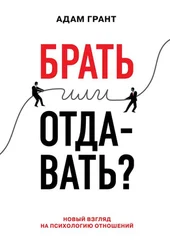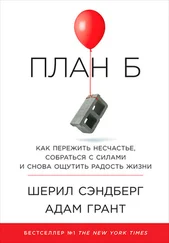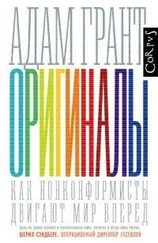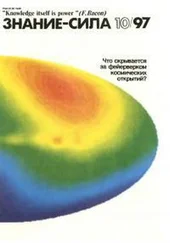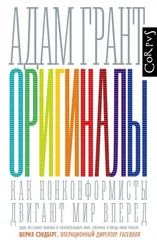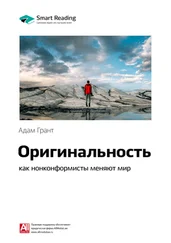Ted Putnam, «Analysis of Escape Efforts and Personal Protective Equipment on the South Canyon Fire», Wildfire 4 (1995): 34–39.
Ted Putnam, «The Collapse of Decision Making and Organizational Structure on Storm King Mountain», Wildfire 4 (1995): 40–45.
Report of the South Canyon Fire Accident Investigation Team, August 17, 1994.
Karl E. Weick, «Drop Your Tools: An Allegory for Organizational Studies», Administrative Science Quarterly 41 (1996): 301–13.
Elizabeth Widdicombe, «Prefrosh E-group Connected Class of ’03», Harvard Crimson, June 5, 2003, www.thecrimson.com/article/2003/6/5/prefrosh-e-group-connected-class-of-03; Scott A. Golder, «Re: ‘Alone in Annenberg? First-Years Take Heart’», Harvard Crimson, September 17, 1999, www.thecrimson.com/article/1999/9/17/letters-begroup-an-important-link-connecting.
Black Lives Matter: Nate Cohn and Kevin Quealy, «How Public Opinion Has Moved on Black Lives Matter», New York Times, June 10, 2020, www.nytimes.com/interactive/2020/06/10/upshot/black-lives-matter-attitudes.html.
Kathryn Schulz, «The Story That Tore Through the Trees», New York Magazine, September 9, 2014, nymag.com/arts/books/features/mann-gulch-norman-maclean-2014-9/index.html.
George Bernard Shaw, Everybody’s Political What’s What? (London: Constable, 1944).
Jacquie McNish and Sean Silcoff, Losing the Signal: The Untold Story behind the Extraordinary Rise and Spectacular Fall of BlackBerry (New York: Flatiron Books, 2015).
«100 Fastest-Growing Companies», CNN Money, August 31, 2009, money.cnn.com/magazines/fortune/fortunefastestgrowing/2009/snapshots/1.html.
Richard Alleyne, «Welcome to the Information Age—174 Newspapers a Day», Daily Telegraph, February 11, 2011, www.telegraph.co.uk/news/science/science-news/8316534/Welcome-to-the-information-age-174-newspapers-a-day.html.
Peter Densen, «Challenges and Opportunities Facing Medical Education», Transactions of the American Clinical and Climatological Association 122 (2011): 48–58.
Joshua J. Clarkson, Zakary L. Tormala, and Christopher Leone, «A Self-Validation Perspective on the Mere Thought Effect», Journal of Experimental Social Psychology 47 (2011): 449–54.
Jamie Barden and Richard E. Petty, «The Mere Perception of Elaboration Creates Attitude Certainty: Exploring the Thoughtfulness Heuristic», Journal of Personality and Social Psychology 95 (2008): 489–509.
W. Ralph Eubanks, «How History and Hollywood Got ‘Cleopatra’ Wrong», NPR, November 1, 2010, www.npr.org/templates/story/story.php?storyId=130976125.
Jason Farago, «T. Rex Like You Haven’t Seen Him: With Feathers», New York Times, March 7, 2019, www.nytimes.com/2019/03/07/arts/design/t-rex-exhibition-american-museum-of-natural-history.html; Brigit Katz, «T. Rex Was Likely Covered in Scales, Not Feathers», Smithsonian, June 8, 2017, www.smithsonianmag.com/smart-news/t-rex-skin-was-not-covered-feathers-study-says-180963603.
Alix Spiegel and Lulu Miller, «How to Become Batman», Invisibilia, NPR, January 23, 2015, www.npr.org/programs/invisibilia/378577902/how-to-become-batman.
Добавлю от себя, что всегда думал, что выражение «поддуть дыма в задницу» [ Sterling Haynes, «Special Feature: Tobacco Smoke Enemas», BC Medical Journal 54 (2012): 496–97. ] пошло от традиции дарить сигары, чтобы произвести хорошее впечатление. Можете представить мое изумление, когда жена рассказала мне об истинном происхождении этого оборота: в 1700-х утонувших пытались возвращать к жизни, в прямом смысле вдувая им дым в задний проход посредством клизмы. Что это вредно для сердца, стало известно позже.
Stephen Greenspan, «Why We Keep Falling for Financial Scams», Wall Street Journal, January 3, 2009, www.wsj.com/articles/SB123093987596650197.
Philip E. Tetlock, «Social Functionalist Frameworks for Judgment and Choice: Intuitive Politicians, Theologians, and Prosecutors», Psychological Review 109 (2002): 451–71.
Hugo Mercier and Dan Sperber, «Why Do Humans Reason? Arguments from an Argumentative Theory», Behavioral and Brain Sciences 34 (2011): 57–74.
Stephen Greenspan, «Fooled by Ponzi (and Madoff): How Bernard Madoff Made Off with My Money», eSkeptic, December 23, 2008, www.skeptic.com/eskeptic/08-12-23/#feature.
Greg Griffin, «Scam Expert from CU Expertly Scammed», Denver Post, March 2, 2009, www.denverpost.com/2009/03/02/scam-expert-from-cu-expertly-scammed.
George A. Kelly, The Psychology of Personal Constructs, vol. 1, A Theory of Personality (New York: Norton, 1955); Brian R. Little, Who Are You, Really? The Surprising Puzzle of Personality (New York: Simon & Schuster, 2017).
Arnaldo Camuffo et al., «A Scientific Approach to Entrepreneurial Decision Making: Evidence from a Randomized Control Trial», Management Science 66 (2020): 564–86.
Mark Chussil, «Slow Deciders Make Better Strategists», Harvard Business Review, July 8, 2016, hbr.org/2016/07/slow-deciders-make-better-strategists.
Walter Isaacson, Einstein: His Life and Universe (New York: Simon & Schuster, 2007).
David J. Lick, Adam L. Alter, and Jonathan B. Freeman, «Superior Pattern Detectors Efficiently Learn, Activate, Apply, and Update Social Stereotypes», Journal of Experimental Psychology: General 147 (2018): 209–27.
Dan M. Kahan, Ellen Peters, Erica C. Dawson, and Paul Slovic, «Motivated Numeracy and Enlightened Self-Government», Behavioural Public Policy 1 (2017): 54–86.
Raymond S. Nickerson, «Confirmation Bias: A Ubiquitous Phenomenon in Many Guises», Review of General Psychology 2 (1998): 175–220.
Ben M. Tappin, Leslie van der Leer, and Ryan T. McKay, «The Heart Trumps the Head: Desirability Bias in Political Belief Revision», Journal of Experimental Psychology: General 146 (2017): 1143–49; Ziva Kunda, «The Case for Motivated Reasoning», Psychological Bulletin 108 (1990): 480–98.
Emily Pronin, Daniel Y. Lin, and Lee Ross, «The Bias Blind Spot: Perceptions of Bias in Self versus Others», Personality and Social Psychology Bulletin 28 (2002): 369–81.
Richard F. West, Russell J. Meserve, and Keith E. Stanovich, «Cognitive Sophistication Does Not Attenuate the Bias Blind Spot», Journal of Personality and Social Psychology 103 (2012): 506–19.
Keith E. Stanovich and Maggie E. Toplak, «The Need for Intellectual Diversity in Psychological Science: Our Own Studies of Actively Open-Minded Thinking as a Case Study», Cognition 187 (2019): 156–66; Jonathan Baron et al., «Why Does the Cognitive Reflection Test (Sometimes) Predict Utilitarian Moral Judgment (and Other Things)?», Journal of Applied Research in Memory and Cognition 4 (2015): 265–84.
Читать дальше
Конец ознакомительного отрывка
Купить книгу

